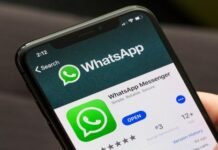
Key Highlights
- US Court Ruling: WhatsApp wins its case against Israeli spyware maker NSO Group, with the court confirming violations of US hacking laws and WhatsApp’s terms of service.
- Pegasus Hack Confirmed: The court validated WhatsApp’s claim that 1,400 phones were hacked, including over 300 from India.
- Fines Awaited: The penalty for NSO Group will be decided in 2024, adding financial consequences to its legal defeat.
- Indian Connection: The controversy over alleged surveillance of journalists, opposition leaders, and government officials in India is likely to resurface.
- Supreme Court’s Role: An Indian probe into Pegasus found no conclusive evidence but noted a lack of cooperation from the central government.
Washington/New Delhi: In a landmark decision, WhatsApp has emerged victorious in its legal battle against NSO Group, the Israeli firm behind the infamous Pegasus spyware. A US court has ruled that NSO Group violated American hacking laws and WhatsApp’s terms of service by targeting users with its spyware. This ruling reinforces WhatsApp’s claim that 1,400 phones were hacked in May 2019, including over 300 belonging to Indian citizens, sparking renewed discussions about surveillance in India.
Pegasus and India: A Controversial Past
The Pegasus spyware scandal erupted in 2021 when reports alleged that the phones of over 300 prominent Indian figures—including government ministers, opposition leaders, journalists, and businessmen—had been targeted. While NSO Group claimed it only sells its software to government agencies, the Indian government categorically denied the allegations, stating that surveillance laws prevent unauthorized monitoring.
However, the US court’s ruling casts a shadow on these denials. With NSO Group losing the case, its operations and previous claims may face closer scrutiny globally, including in India.
Supreme Court Investigation Stalled
In India, the Pegasus controversy had reached the Supreme Court, which formed an inquiry committee to investigate the allegations. While the committee found no evidence of unauthorized surveillance, it criticized the central government for not cooperating fully with the investigation. The findings of the committee remain sealed, and the lack of transparency has fueled public skepticism.
The Court’s Verdict and Future Implications
The US court’s decision is a significant blow to NSO Group’s credibility. It not only validates WhatsApp’s allegations but also sets a precedent for holding spyware makers accountable. The financial penalties NSO will face are expected to be decided next year, potentially dealing a severe blow to the company’s operations.
For India, the verdict may reopen debates about privacy and surveillance. Critics argue that the lack of accountability and transparency in the Pegasus probe undermines trust in the government’s surveillance practices.
WhatsApp’s Stand on Privacy
WhatsApp, owned by Meta, has reiterated its commitment to user privacy and security. After detecting Pegasus attacks in 2019, the messaging platform swiftly acted against NSO Group, filing a lawsuit in the US to protect its users.

“Our victory is a step toward ensuring accountability for those who abuse technology to violate privacy,” a WhatsApp spokesperson said.
The US court’s ruling against NSO Group is a major step in the global fight against cyber-surveillance abuses. For India, it revives unresolved questions about the use of Pegasus spyware and the broader implications for privacy rights. The coming months will likely see renewed demands for transparency and accountability, both from the government and private entities implicated in surveillance controversies.





















































